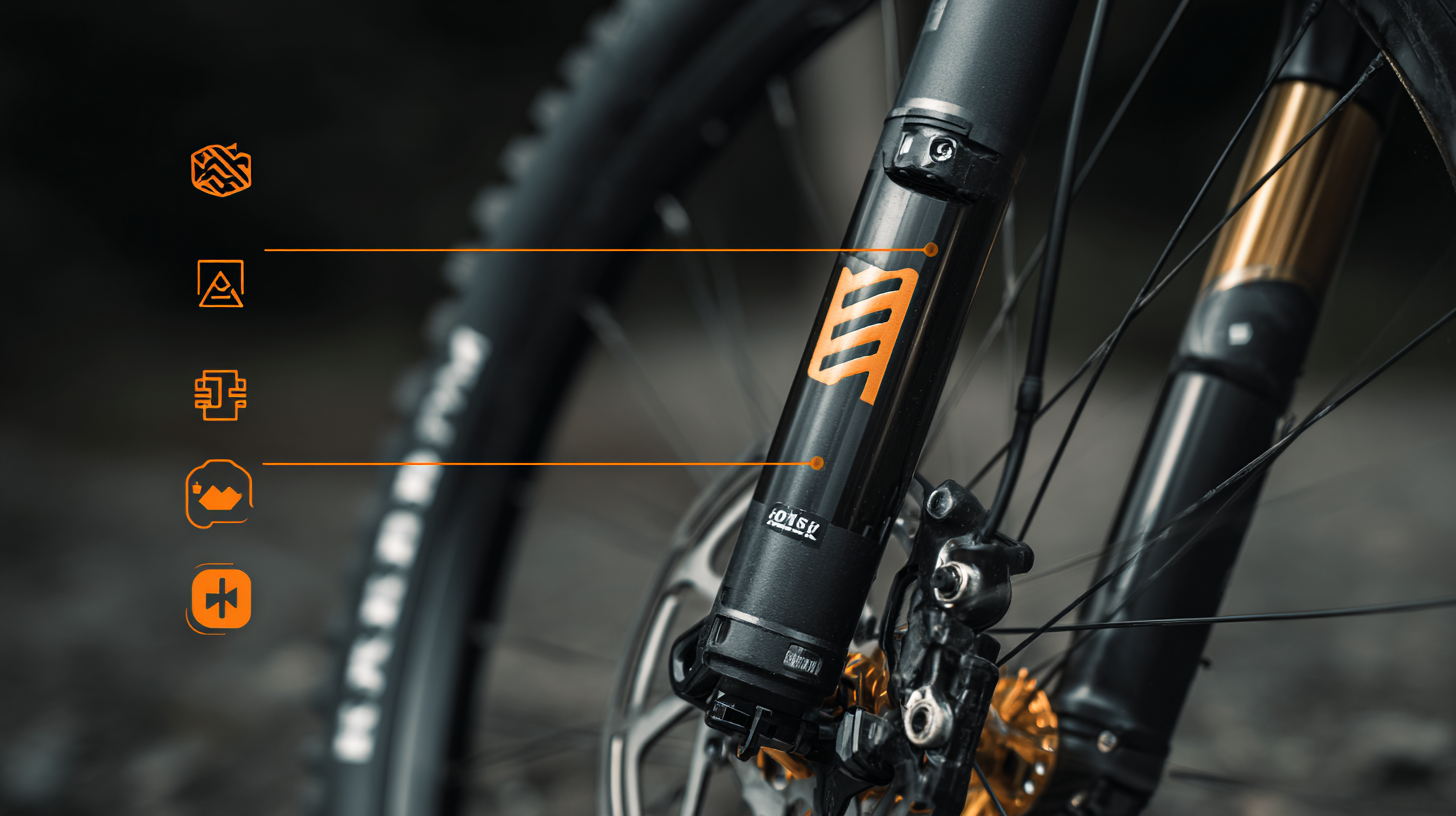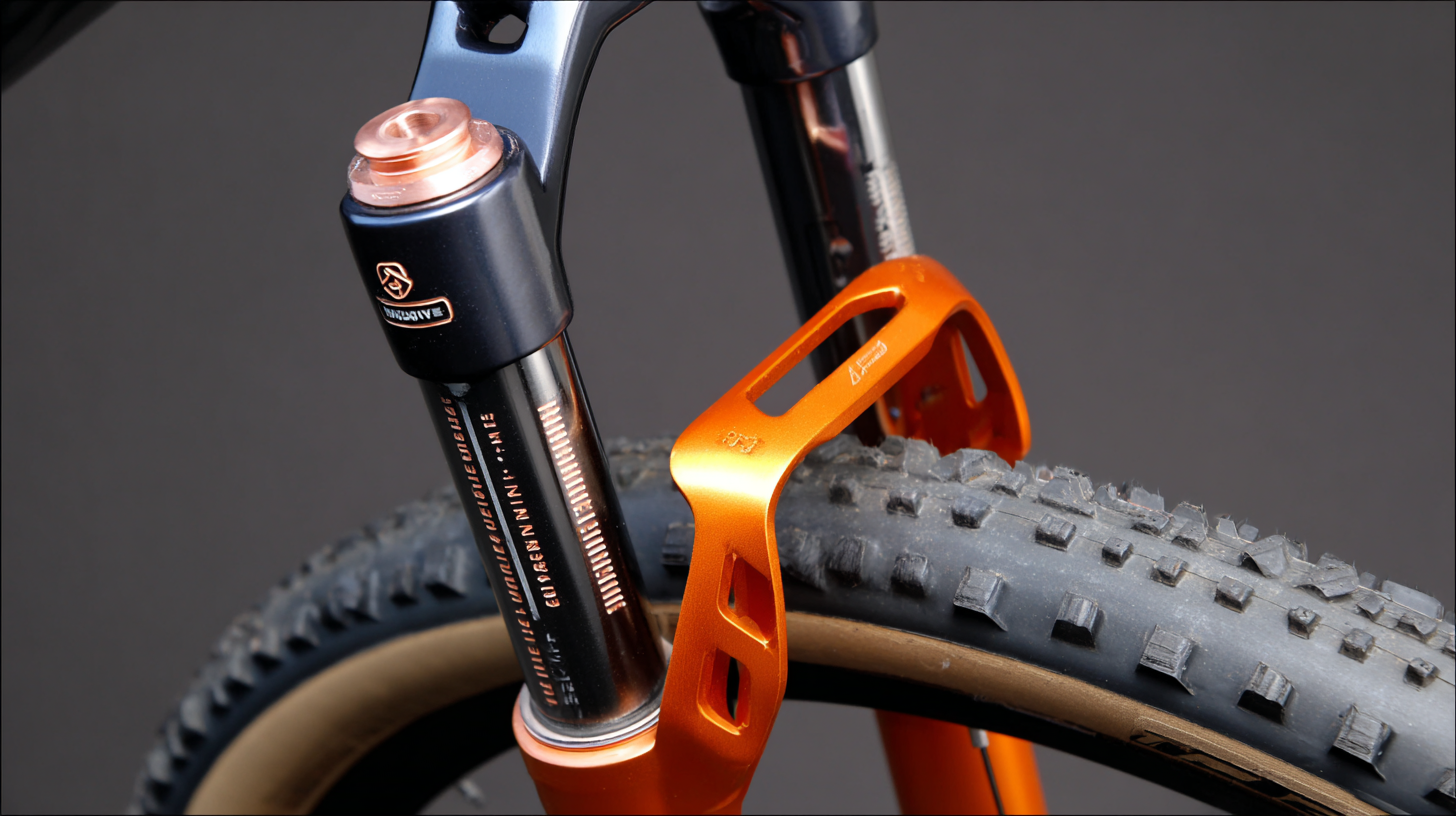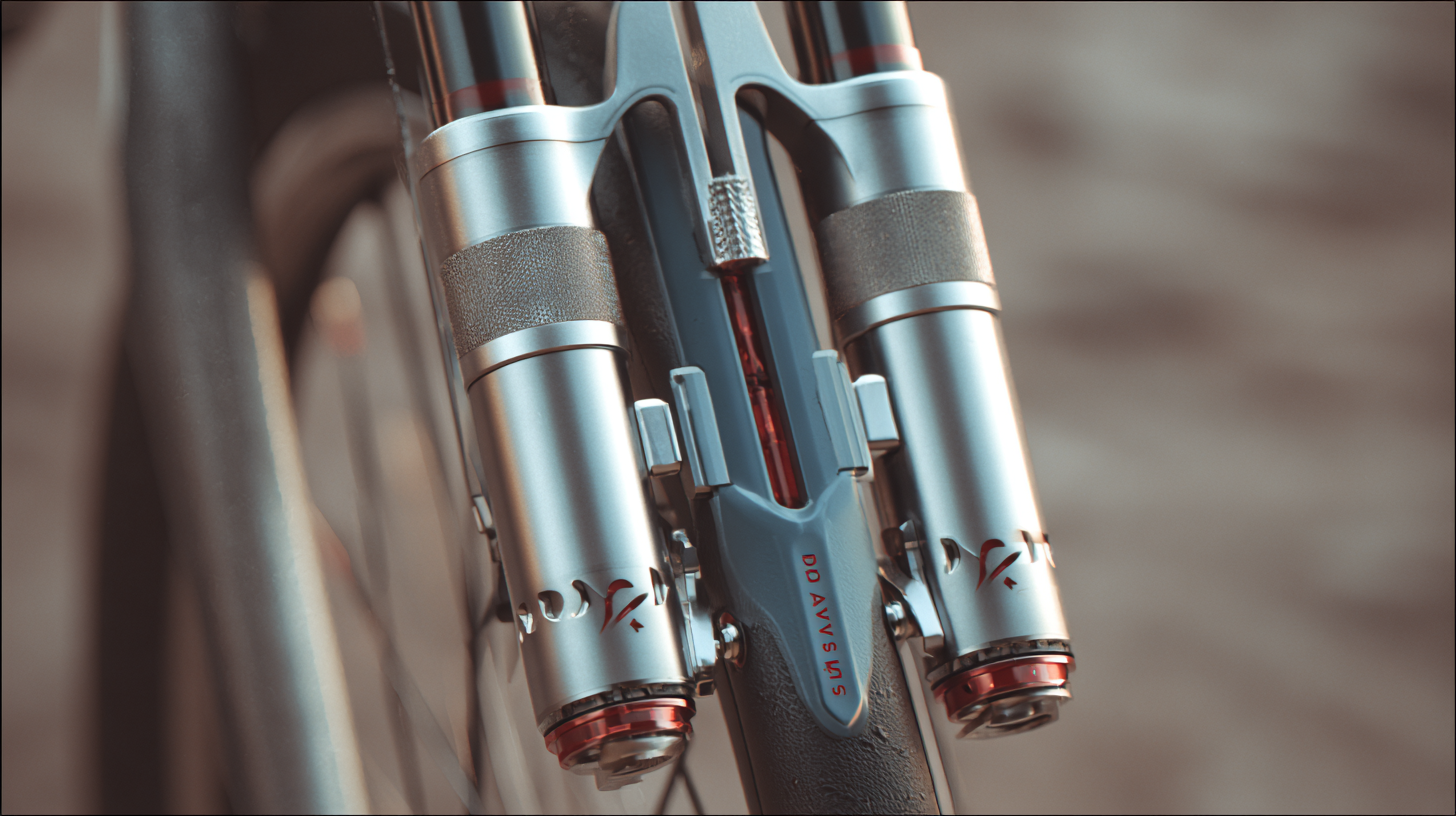Cycling enthusiasts are continuously seeking the best gear to enhance their riding experience, and one of the most crucial components is undoubtedly the bicycle fork. As the part that connects the front wheel to the frame, the bicycle fork plays a pivotal role in determining handling, stability, and comfort. According to a report from The International Journal of Bicycle Design, advancements in materials and engineering techniques have led to a 30% increase in performance metrics associated with bicycle forks over the past decade. Innovations such as carbon fiber construction, adjustable geometry, and integrated suspension systems have transformed the market and provided cyclists with an array of options tailored to their needs. This blog will delve into the innovative designs of the best bicycle forks currently available, exploring their unique benefits and how they cater to different types of cyclists, ultimately enhancing the overall riding experience.

The evolution of bicycle fork designs has seen remarkable innovations that cater to the diverse needs of cycling enthusiasts. Historically, traditional designs were limited to rigid forks or simple suspension systems, mainly focused on functionality. However, recent advancements have introduced materials such as carbon fiber and high-grade aluminum, resulting in forks that not only reduce weight but also enhance performance. According to the International Bicycle Fund, approximately 50% of cyclists prioritize fork weight and material quality when purchasing a new bike, reflecting the significance of innovation in this area.
When considering a new bike fork, it's crucial to look for designs that integrate modern technology. For instance, fork geometry can significantly affect handling and stability, particularly in various terrains. For mountain bikers, a suspension fork that can handle rough trails is essential, while road cyclists may benefit from stiffer designs that improve power transfer.
**Tips:** Always check the fork's travel specifications, as they indicate how much they can compress under impact. Additionally, consider adjustable dampers that allow you to tune the fork's response based on your riding style. Lastly, don't underestimate the importance of proper weight distribution, as it plays a pivotal role in maintaining your bike's overall balance and control.
When it comes to the best bicycle forks for serious cycling enthusiasts, the focus on performance and durability is paramount. High-quality bicycle forks are essential for enhancing a rider's experience, especially during high-speed descents. For instance, the innovative design found in models like the 2012 sleek downhiller showcases how materials and engineering can vastly improve responsiveness and control. The integration of advanced suspension systems not only absorbs shocks but also provides unmatched stability, ensuring that the rider maintains confidence at high speeds.
Moreover, the versatility in fork designs caters to various riding styles, from aggressive downhill racing to casual road cycling. As seen with the latest entry-level bikes, their forks are crafted to balance weight and strength, providing a smooth ride without compromising durability. This attention to detail allows riders to enjoy longer journeys or tackle rugged terrains with peace of mind. As the cycling industry continues to evolve, investing in a high-quality fork not only enhances performance but also enriches the overall cycling experience.
| Fork Type | Material | Weight (g) | Travel (mm) | Damping System | Price Range ($) |
|---|---|---|---|---|---|
| Rigid Fork | Steel | 800 | N/A | N/A | 50-100 |
| Suspension Fork | Aluminum | 1500 | 100 | Air or Spring | 300-800 |
| Carbon Fork | Carbon Fiber | 600 | N/A | N/A | 200-600 |
| Cross-Country Fork | Aluminum | 1300 | 120 | Adjustable | 400-900 |
| Downhill Fork | Aluminum | 2200 | 200 | Compression and Rebound | 600-1200 |
When it comes to bicycle forks, Chinese manufacturing has established itself as a benchmark for quality and innovation. The ability to produce high-quality materials and implement advanced techniques allows Chinese manufacturers to create bicycle forks that cater to a diverse range of cycling needs. This commitment to excellence is evident in the impressive variety of designs available, from lightweight carbon fiber options to robust aluminum builds. Furthermore, the rigorous quality control measures employed during production ensure that each fork meets stringent safety standards, giving cyclists the confidence they require on the road or trail.
Moreover, the integration of cutting-edge technology in the design process sets Chinese bicycle forks apart from their competitors. Many manufacturers incorporate features such as adjustable suspension systems and aerodynamic shapes that enhance performance. This focus on innovation not only improves the functionality of the forks but also serves to inspire new generations of cyclists. As the demand for high-performance cycling gear continues to rise, China’s ability to blend traditional craftsmanship with modern engineering techniques positions it as a leader in the bicycle industry, ultimately benefiting cycling enthusiasts worldwide.

When it comes to cycling, the type of bicycle fork you choose can significantly affect your performance and overall riding experience. Different cycling disciplines require specific fork designs tailored to their unique demands. For instance, mountain biking forks often utilize a suspension system to absorb shocks from rough terrains, while road cycling forks are typically stiffer and lighter to enhance speed and responsiveness. According to a report from the Cycling Industry, over 40% of avid cyclists prioritize fork material, with carbon fiber emerging as the top choice due to its balance of weight and durability.
When selecting a fork for your bike, consider these tips: first, check the compatibility with your existing setup, including axle size and brake system. Secondly, pay attention to fork travel distance, particularly for mountain biking, where 120mm to 160mm can significantly improve your capability on descents. For road cyclists, a lighter fork can enhance speed; look for options that weigh under 400 grams.
Exploring the nuances of bicycle forks can truly enhance your cycling journey, whether you're navigating rugged trails or racing on asphalt. With advancements in technology, many forks now incorporate features like adjustable damping systems which allow you to tailor the ride feel to your preference, balancing comfort with efficiency.

The design of bicycle forks plays a critical role in influencing the riding experience and safety of cyclists. According to recent studies, the geometry of a bicycle directly affects its stability, handling, and overall performance. For instance, a well-designed fork can enhance the responsiveness of the bike, allowing for smoother turns and improved control on various terrains. This is especially pertinent for cycling enthusiasts who engage in different riding styles, ranging from casual commuting to aggressive mountain biking. Research indicates that bicycle forks designed with advanced materials and optimizations can reduce the weight of the bike while maintaining durability, which is essential for safe riding.
Moreover, the impact of cargo loading on rideability cannot be overlooked, especially for cargo bikes that are becoming increasingly popular among urban cyclists. An investigative study analyzed various cargo bike designs, revealing that those with optimized fork geometry experienced less sway and better balance under load. This directly correlates with enhanced rider safety, as a stable bike can better navigate crowded or uneven environments. As the cycling industry continues to innovate, understanding these dynamics will help enthusiasts select bicycles that not only cater to their riding preferences but also ensure a safer and more enjoyable experience on the road.
